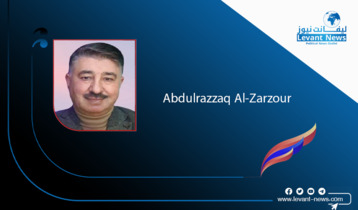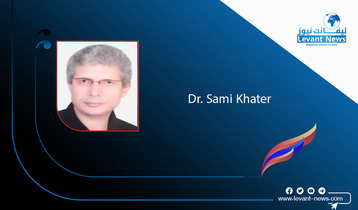-
Decentralization versus Centralization

Political decentralization is a goal that the Kurds in Western Kurdistan and northeastern Syria steadfastly pursue. Today, it aligns with the desires of minority components in Syria, particularly in the coast and Suwayda, but clashes with the one-color government, which appears as a legitimate regime opening its doors for investment, conducting rounds here and there—whether in Russia or during Shibani's recent visit to Turkey—aiming to strengthen its stance amidst the chaos of its factions and their massacres, both openly and visually in Suwayda and previously in the coast. It has established a probe committee tailored to justify its existence as a government confronting remnants and separatist projects, as its media and online trolls describe it.
Undoubtedly, the radical religious government led now by Abu Mohammed al-Julani, also known as "Ahmad al-Sharif," draws from the ancient political rule principle of empowerment. This principle is used to control completely through suppression of opponents and ending political pluralism. It has dismissed all Alawite officials claiming they benefitted from the previous regime, also dissolving all parties—a move reminiscent of the Umayyad state era, when Muawiya ibn Abi Sufyan, after taking power, eliminated all opposition, including Kharijites and Shia. Furthermore, the Hay’at Tahrir al-Sham authority held a conference under Hassan Al-Daghem, appointing military men and faction leaders to control state resources, leaving some Kurdish figures in ministries just to silence critics or to make the government appear inclusive of all components.
All forms of religious rule—whether during the Umayyad, Abbasid eras, or the era of the Almoravids in Morocco and Andalusia, or more recently, the Taliban’s rise between 1996 and 2001—indicate that Islamic political thought fundamentally rejects democracy or participatory governance. Examples include Egypt in 2012, when the Muslim Brotherhood seized power, Islamizing the state, excluding all other forces, and labeling them apostates. From these countless historical and contemporary examples, it is clear that the jihadist mindset in governance cannot master political acumen or manage differences; instead, it relies solely on the use of force to protect its authority.
**Decentralization versus Centralized Damascus Government**
Both projects—Kurdish and government—are rooted in regional interests linked to the ongoing conflict involving Israel, France, Turkey, Qatar, and Saudi Arabia, with the desire to contain the Syrian government. This explains the continued presence of Abu Mohammed al-Julani’s government as a guard preventing Iranian influence from returning to the region. Conversely, Israel fears such a government close to its borders and strives to keep southern Syria a demilitarized zone. France also fears Turkey’s growing influence in Syria, as this new authority replaced the fallen Assad regime according to its management, amid Turkey’s fears of the "New Middle East" project led by Israel, Britain, and the U.S., which could threaten Turkey as a nation ruled by a homogeneous ethnic Turkish identity for over a century. The massacres in the coast and Suwayda further strengthened the alliance of minorities—initially an Israeli desire later realized—drawing a scenario of deadly bloodshed between majority authority and minorities. Israel plans this blood conflict after destroying the remaining capabilities of the Syrian army everywhere, keeping small arms in factions’ hands for infighting, weakening Syria, and benefiting from the situation—an absence of a real state apparatus—thus fueling ongoing civil wars and conflicts likely spilling into Lebanon, with sectarian clashes between Sunni ruling authorities and other components.
The current Syrian government’s rhetoric incites violence and tension, turning Syria into a sectarian tinderbox that the central regime cannot control. The Al-Hasakah conference reflects the government’s weakness and inability to steer Syria toward stability alone. Meanwhile, Turkey’s intervention in the Syrian file, threatening a military operation or supporting the jihadist government with military aid—discussed after the Shibani visit with Turkish Foreign Minister Hakan Fidan—indicates that these moves are likely coordinated by France, Israel, and perhaps the U.S. This prompts Turkey to intervene, leading Damascus to boycott the planned conference in Paris and threatening the Kurdish-led Syrian Democratic Forces (SDF).
"Dim Partin’s" statement was a response to Turkish Foreign Minister Hakan’s warning that any military intervention by Turkey or threats to Kurdish gains in Syria could undermine efforts for peace between Turkey and the Kurdistan Workers’ Party (PKK). This message must be taken seriously, because any escalation against Kurds and the SDF will not only destabilize Syria but could also threaten regional peace, harming Turkey’s internal stability, which is in no one’s interests.
Ribar Hobon
Tags
You May Also Like
Popular Posts
Caricature
opinion
Report
ads
Newsletter
Subscribe to our mailing list to get the new updates!























